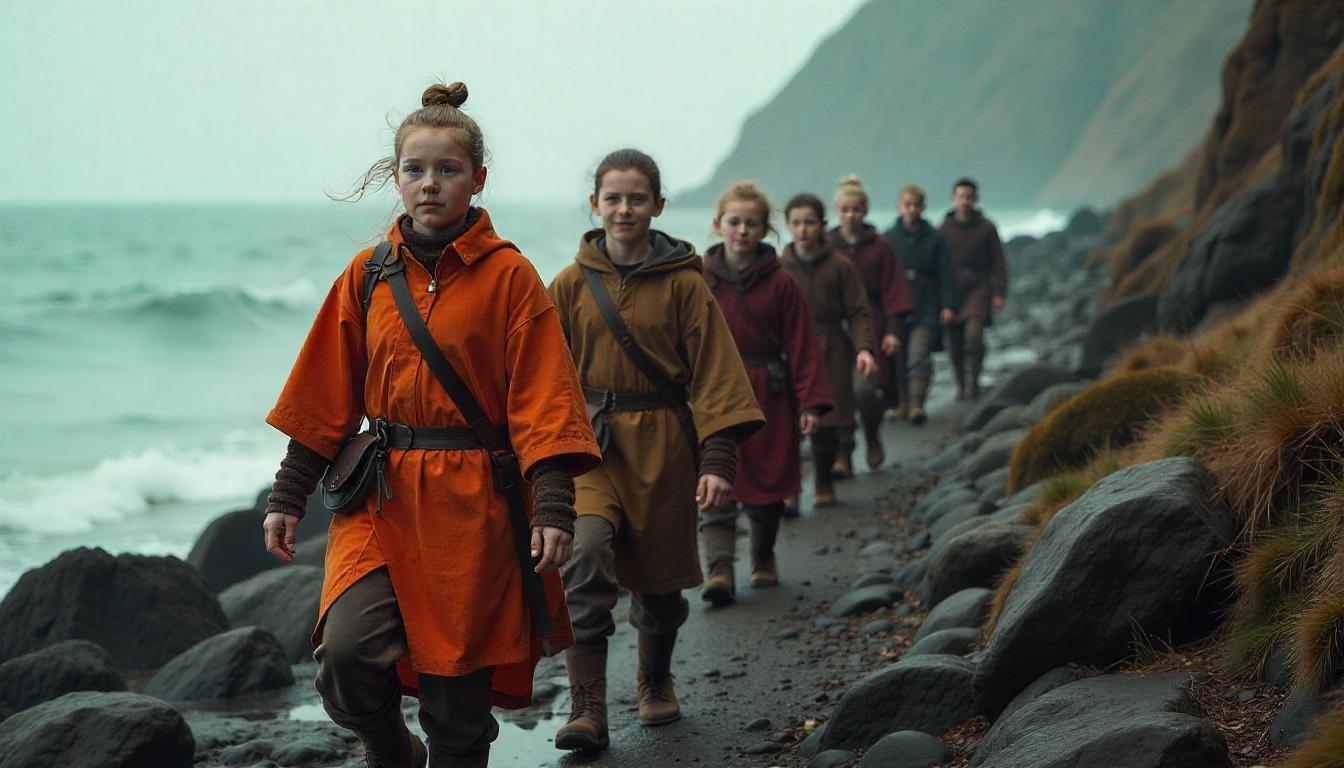How to Train Your Dragon: A Comprehensive Guide
Dragons have been a part of mythology and folklore for centuries, often depicted as powerful and sometimes dangerous creatures. However, the How to Train Your Dragon franchise has redefined our perception of dragons, portraying them as trainable, loyal companions rather than fearsome beasts. This article will delve into the process of dragon training as illustrated in the series, explore the main characters, the bond between humans and dragons, and the underlying themes of trust, perseverance, and friendship.
1. Introduction to How to Train Your Dragon
How to Train Your Dragon began as a book series by Cressida Cowell before being adapted into a successful animated film series by DreamWorks. The story is set in the Viking village of Berk, where dragons and humans initially view each other as adversaries. However, Hiccup, the protagonist, changes this dynamic by forming an unprecedented friendship with a Night Fury dragon named Toothless.
2. The Steps to Training a Dragon
Training a dragon requires patience, understanding, and mutual respect. In the How to Train Your Dragon series, Hiccup demonstrates a unique approach to taming and befriending dragons. Below are key steps based on his journey:
a) Observing and Understanding
Before approaching a dragon, it is essential to study its behavior. Hiccup realizes that dragons, like all creatures, have distinct personalities, strengths, and weaknesses. By observing Toothless, he understands that fear and aggression stem from misunderstanding.
b) Establishing Trust
Trust is the foundation of any strong relationship. In the first film, Hiccup extends a hand to Toothless, showing he means no harm. Instead of force, he uses kindness and patience, proving that dragons can respond to positive reinforcement rather than fear.
c) Communication and Non-Verbal Cues
Since dragons cannot speak, communication relies heavily on body language and actions. Hiccup learns to interpret Toothless’s expressions and signals, using gestures and sounds to build their unique form of communication.
d) Offering Food as a Gesture of Peace
One of the earliest ways Hiccup bonds with Toothless is by offering him food. Sharing food is a universal sign of goodwill and helps establish a connection based on mutual benefit.
e) Learning to Ride
After gaining Toothless’s trust, Hiccup gradually learns how to ride him. This process requires coordination, balance, and an understanding of the dragon’s movement. It also deepens their bond, as they must work together seamlessly.
f) Continuous Training and Adaptation
Dragon training is an ongoing process. Hiccup and his friends develop new flying techniques, discover dragon abilities, and learn how to coexist with these creatures through continuous learning and adaptation.
3. Main Characters and Their Dragons
The How to Train Your Dragon series features several key characters, each with their own unique dragon companions:
- Hiccup & Toothless: The main duo, a Viking boy and his Night Fury, who redefine the relationship between dragons and humans.
- Astrid & Stormfly: Astrid, a fierce warrior, rides a deadly Nadder named Stormfly, demonstrating agility and precision in flight.
- Snotlout & Hookfang: Snotlout’s dragon, Hookfang, is a Monstrous Nightmare, known for its fiery personality.
- Fishlegs & Meatlug: Fishlegs, the intellectual of the group, partners with the affectionate Gronckle, Meatlug.
- Ruffnut & Tuffnut with Barf & Belch: The twin siblings ride a two-headed Hideous Zippleback, showcasing teamwork and coordination.
4. Themes in How to Train Your Dragon
The franchise explores profound themes that resonate with audiences of all ages:
a) Friendship and Loyalty
The bond between Hiccup and Toothless illustrates the power of friendship. Their relationship teaches that true companionship is built on mutual respect and trust.
b) Overcoming Fear and Prejudice
At the beginning of the series, Vikings and dragons fear and misunderstand each other. Hiccup’s journey challenges societal norms and proves that peace is possible through understanding.
c) Growth and Self-Discovery
Hiccup evolves from an insecure boy into a confident leader. His journey mirrors the trials of growing up, facing adversity, and finding one’s place in the world.
d) Environmental Harmony
The series emphasizes coexisting with nature and creatures rather than controlling them. It promotes the idea that different species can live in balance and support one another.
5. Expanding the How to Train Your Dragon Universe
The success of the original film led to two sequels, several television series, and spin-offs, further exploring the relationship between humans and dragons. Each installment builds on the themes of unity, adventure, and resilience.
a) How to Train Your Dragon 2
The sequel explores Hiccup’s role as a leader and the discovery of new dragon species. It also introduces his long-lost mother, Valka, who has dedicated her life to protecting dragons.
b) How to Train Your Dragon: The Hidden World
The final chapter in the trilogy highlights the importance of letting go and finding a safe haven for dragons. Hiccup and Toothless must make difficult choices to ensure the survival of their species.
c) Television Series and Spin-Offs
Shows like Dragons: Race to the Edge and Dragons: Rescue Riders expand on the lore, introducing new characters and challenges while reinforcing the lessons of friendship and courage.
6. The Legacy of How to Train Your Dragon
The franchise has left a lasting impact on audiences worldwide. Its compelling storytelling, breathtaking animation, and emotional depth make it a beloved series. Fans continue to celebrate its messages of acceptance, perseverance, and the power of friendship.
Conclusion
How to Train Your Dragon is more than just a story about Vikings and dragons; it is a tale of growth, understanding, and breaking barriers. Through Hiccup’s journey, we learn that courage is not about brute strength but about empathy and wisdom. Whether in fiction or reality, training a dragon—or any relationship—requires patience, trust, and an open heart. As the franchise teaches, sometimes the most unlikely friendships turn out to be the most extraordinary.
